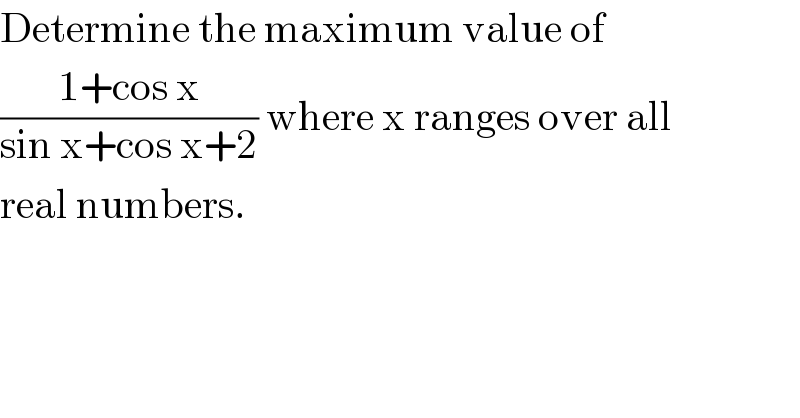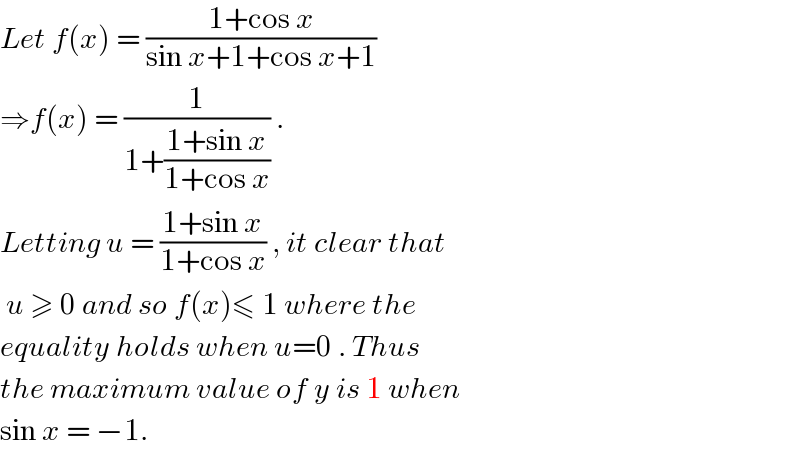
Question and Answers Forum
Question Number 116374 by bemath last updated on 03/Oct/20

Answered by MJS_new last updated on 03/Oct/20

Commented by bemath last updated on 03/Oct/20

Answered by john santu last updated on 03/Oct/20

| ||
Question and Answers Forum | ||
Question Number 116374 by bemath last updated on 03/Oct/20 | ||
 | ||
Answered by MJS_new last updated on 03/Oct/20 | ||
 | ||
| ||
Commented by bemath last updated on 03/Oct/20 | ||
 | ||
Answered by john santu last updated on 03/Oct/20 | ||
 | ||
| ||